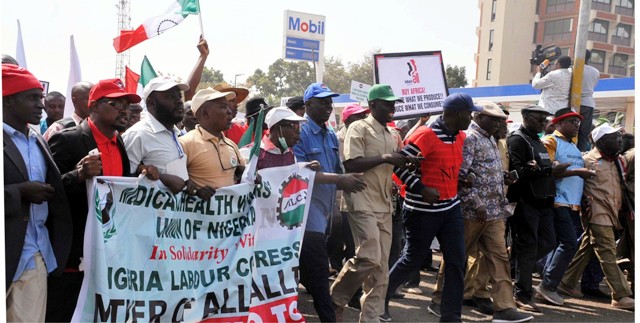Business
NDDC Set To Empower 5,000 Youths, Women

The Niger Delta Development Commission (NDDC) has finalised plans to set up training programmes that would ensure the creation of jobs for women and youths in the Niger Delta region.
The NDDC Managing Director, Mr Nsima Ekere, outlined the plans, last Wednesday at the flag-off ceremony of the 6thEmpowerment Support Initiative (ESI), and NDDC Skill Acquisition Training for Niger Delta Youth in Owerri, Imo State.
Ekere, who was represented by the NDDC Executive Director Projects, Engr. Samuel Adjogbe, said that 5,000 youth and women from the Niger Delta will benefit from a massive skill acquisition programme billed to start from the first quarter of this year in the nine states of the Niger Delta region.
The NDDC had earlier signed a Memorandum of Understanding (MoU), with the Small and Medium Enterprises Development Agency of Nigeria (SMEDAN), and Builders Hub Impact Investment Programme (BHIIP), for the establishment of Nigeria’s first and grandest enterprise innovation and growth hub.
The NDDC chief executive officer promised that the enterprise hub would be up and running in the shortest possible time, noting that it would help to create more jobs and fight unemployment to ensure that militancy was eradicated in the Niger Delta.
Ekere said that President Muhammadu Buhari directed the commission to leave no stone unturned in ensuring that Niger Delta youth and women were gainfully and profitably engaged and empowered for a sustainable livelihood.
He assured: “This is precisely what we are doing. This is exactly, what we will do with an increased tempo this year.”
On the Home Finishing Skills training, he explained that it would cover key specialisations such as welding and fabrication; modern printing technology; solar power technology; maritime technology; entrepreneurship development; food processing, catering and confectioneries; creative arts and entertainment, as well as fashion design and tailoring.
Ekere noted that the four-week training in partnership with ESI, a non-governmental organisation (NGO), was a significant development, not just for the construction industry in the Niger Delta region but in Nigeria.
He declared: “The skill gap in quality finishing of homes, offices and other building projects, has remained a yawning and constant source of concern for home owners and operators in the construction industry. In most cases, the standard of finishing of homes and offices is so poor that builders and home owners resort to hiring skilled tradesmen and craftsmen from neighbouring countries and even beyond.
“This is one of the reasons we have decided to intervene in this sector of the construction industry, in furtherance of our mandate on human capital development. This programme, therefore, seeks to develop and deliver training, under the supervision of world class experts from United Kingdom, for 100 qualified participants, in the first instance.”
Ekere listed the skill areas for the programme as “P.O.P ceiling installation; wall screeding and painting; floor plumbing; electrical wiring; specialized carpentry such as wardrobes and kitchen cabinets, as well as interior decoration.”
He stated that the training in different fields would be based on the requirements taken from relevant United Kingdom occupational standards and associated qualifications, which would be contextualized to meet the requirements in Nigeria.
Susan Serekara-Nwikhana
Business
Fidelity Bank To Empower Women With Sustainable Entrepreneurship Skills, HAP2.0
Business
President Tinubu Approves Extension Ban On Raw Shea Nut Export
Business
Crisis Response: EU-project Delivers New Vet. Clinic To Katsina Govt.
-

 News3 days ago
News3 days agoAmend Constitution To Accommodate State Police, Tinubu Tells Senators
-

 Politics3 days ago
Politics3 days agoSenate Urges Tinubu To Sack CAC Boss
-

 News2 days ago
News2 days agoDisu Takes Over As New IGP …Declares Total War On Corruption, Impunity
-
Business3 days ago
President Tinubu Extends Raw Shea Nuts Export Ban To 2027
-
Business3 days ago
Crisis Response: EU-project Delivers New Vet. Clinic To Katsina Govt.
-
Business3 days ago
President Tinubu Approves Extension Ban On Raw Shea Nut Export
-
Sports3 days ago
NDG: Rivers Coach Appeal To NDDC In Talent Discovery
-
Rivers3 days ago
Etche Clan Urges Govt On Chieftaincy Recognition

